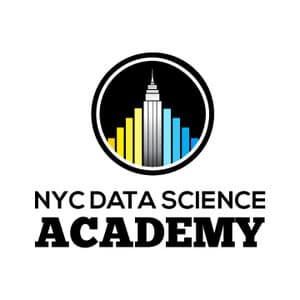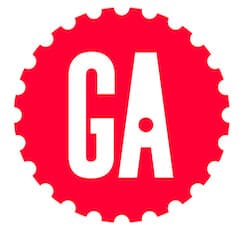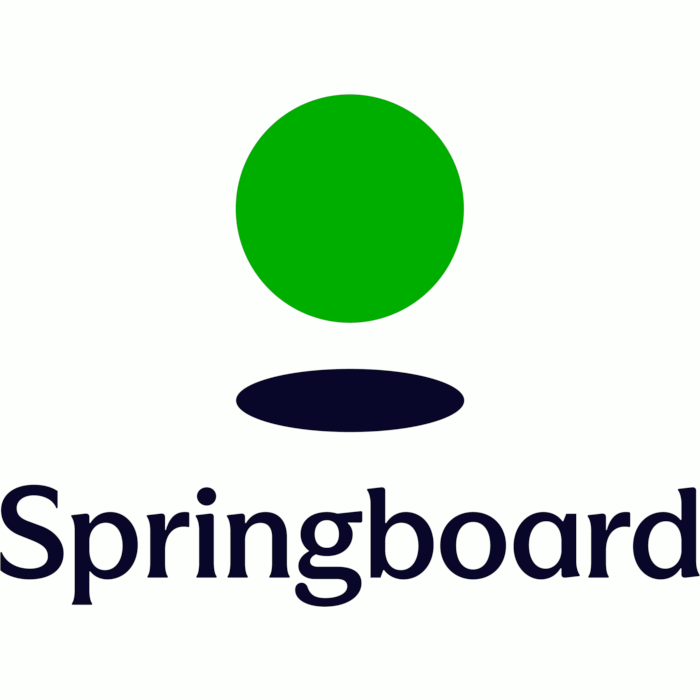About NYC Data Science Academy
Location:
NYC Data Science Academy is the only national accredited Data Science Bootcamp in the United States. We are also proud that we are the only bootcamp that teaches Python and R. The academy is well known for its industry project-oriented learning experience... Read More
- The only national accredited Data Science Bootcamp in the United States
The academy offers accredited data science and data analytic bootcamps in New York City and remotely online. The programs can be completed within 3 months, 4 months, and 6 months. In these programs, students learn beginner and intermediate levels of Data Science with Hadoop, Spark, Github, Docker, and SQL, as well as popular and useful Python and R packages like XgBoost, Caret, Dplyr, Ggplot2, Pandas, Scikit-learn, and more.
- Individual/ group projects showcased to hiring partners
Once the learning foundation has been set, students work on multiple projects through the Bootcamp. The program distinguishes itself by the breadth of its curriculum as well as by balancing intensive lectures with real-world project work. Students will work individually and with teams throughout the program to create at least four projects showcased to employers through multiple channels; private hiring partner events, student blogs, meetups, and film presentations.
- Lifetime Career Support
The academy also offers solid lifetime career support. There are four channels of engagement: Tech interview prep, unlimited mentorships, career services adviser who's forwarding your resume on your behalf, and a lifetime job portal. We also provide mock interviews, including challenges and behavioral questions and 1-on-1 post-interview reviews and feedback meetings from career mentors.
Do you represent this school? Suggest edits.
Courses
12-Week Data Science Bootcamp
Big Data with Hadoop and Spark
Data Science with Python: Data Analysis and Visualization
Data Science with Python: Machine Learning
Data Science with R: Data Analysis and Visualization
Data Science with R: Machine Learning
Data Science with Tableau
Deep Learning
Introductory Python
NYC Data Science Academy Reviews
Average Ratings (All Programs)
Alexandra Melville
Data Scientist | Graduated: 20259/10/2025
Course
12-Week Data Science Bootcamp
"Wonderful Experience"
I really enjoyed this bootcamp. I came into this looking to switch careers from teaching math, with little knowledge of data science, and have completed the program really excited about my new career. The curriculum really helps you to understand what... Read More
Do you represent this school? Respond to a review.
Anonymous
Graduated: 20254/11/2025
Course
12-Week Data Science Bootcamp
"A Supportive and Skill-Boosting Experience"
My bootcamp experience has been incredibly positive and supportive. From day one, the entire team made me feel welcomed and encouraged. Everyone was always willing to help, whether it was during coding sessions or when I had questions outside of class.... Read More
huimin ou
Analytics Manager | Graduated: 20193/9/2025
Course
12-Week Data Science Bootcamp
"Best Data Science Bootcamp"
I decided to join the Data Science with Machine Learning In-Person track at the NYC Data Science Academy because I knew it would help me break into the New York job market. The bootcamp’s strong connections in the city were a major draw, and knowing that... Read More
Elsa Amores Vera
Data Scientist | Graduated: 202410/14/2024
Course
12-Week Data Science Bootcamp
"Career-Boosting AI Training"
My journey with NYC Data Science Academy began in 2018 when I enrolled in their Data Science and Machine Learning bootcamp. As a Biology PhD looking to transition into Data Science, this bootcamp became a pivotal moment in my career. Within two months... Read More
Recently, I relocated to Europe for personal reasons and took some time off, only to find myself facing the ever-evolving tech job market. It quickly became clear that the landscape had shifted significantly towards generative AI. After researching multiple options, I returned to NYCDSA and enrolled in their "AI Bootcamp for Real World Applications." This program provided the deeper technical training in state-of-the-art AI, particularly in Large Language Models (LLMs), that I needed to reenter the workforce. For my capstone project, I developed an advanced hotel recommender system using semantic search, Retrieval-Augmented Generation (RAG), and LLMs, hosted entirely on AWS. Additionally, I published blog posts on the project and my AI insights, which helped demonstrate my expertise to potential employers.
What sets NYCDSA apart from other institutions is the depth of their technical curriculum and hands-on approach. While many programs lean more towards business concepts and inspiration, NYCDSA strikes the perfect balance between theory and practical application, particularly in design and implementation. Cole, the lead instructor for the AI Bootcamp, was instrumental in my success, breaking down complex AI concepts in an accessible and engaging way. Thanks to this bootcamp, I re-entered the job market with confidence and cutting-edge AI skills. Two months after completing the program, I received offers from two different companies. I highly recommend NYC Data Science Academy, especially their AI Bootcamp, to anyone looking to advance their career in Data Science and AI.
Raunak Padore
Graduated: 20228/23/2024
Course
12-Week Data Science Bootcamp
"It Works!!!"
An awesome experience! The pace is fast, the program is demanding. You need all your ability and energy for this course. The staff is composed of brilliant and kind folks who are there to support you in all possible ways. It is up to the individual how... Read More
Mmaduabuchi Okpala
Machine Learning Engineer | Graduated: 20228/20/2024
Course
12-Week Data Science Bootcamp
"NYCDSA made my career break into Machine Learning a lot easier"
Transitioning into a new career, especially in a demanding field like machine learning, can be an overwhelming challenge. But thanks to the NYC Data Science Academy, my journey was not only smoother but also deeply enriching.
The curriculum at NYCDSA is... Read More
Hank Yun
Graduated: 20193/3/2024
Course
12-Week Data Science Bootcamp
"Research Assistant -> Data Engineer"
I chose to attend NYC Data Science Academy in 2019 because their campus was located near Port Authority and they provided individual courses after work hours. I was new to data and coding and took advantage of my employer’s tuition reimbursement to take... Read More
Anonymous
Graduated: 202311/24/2023
Course
Data Science with Python: Machine Learning
"Great introduction to basic and advanced concepts in ML"
I took this bootcamp mainly due to a referral from a friend and colleague from work. I had a background in working with R but had never really worked with python or ML. My schooling is in Engineering and have been exposed a bit to ML and programming,... Read More
Anonymous
Graduated: 20219/19/2023
Course
12-Week Data Science Bootcamp
"Excellent instructors, inconsistent support"
I completed the online Data Science Bootcamp in 2021. I had been thinking about enrolling in a DS bootcamp for years, and although the price was steep, I read many positive reviews on NYCDSA and it was recommended to me by colleagues. I decided to put... Read More
Baptiste Mokas
entrepreneur | Graduated: 20208/28/2023
Course
12-Week Data Science Bootcamp
"Amazing experience"
The 12-week Data Science bootcamp at NYCDSA was an incredible learning experience. The program provided an extensive and comprehensive curriculum that covered a wide range of data science topics, from data manipulation and analysis to machine learning... Read More






